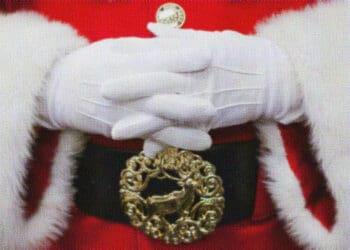Why Your E&C Program Should Be Operationalized
An ethics and compliance program is in trouble from the start if it meets with staunch opposition from any element within in the organization. Michael Volkov explains why the best programs are operationalized, with buy-in and cooperation from every function.
The beauty of an effective ethics and compliance program is captured in the well-known phrase – it is worth much more than the sum of its parts.
I am reminded of the Beatles refrain, “All Together Now,” which is an apt reminder of the importance of operationalizing an ethics and compliance program. Frankly, the life of an ethics and compliance program depends on the extent to which it is operationalized.
A compliance program lives or dies depending on the cooperation and coordination of every element of a corporation, starting with the C-Suite and stretching from the business to human resources, finance, security, internal audit, procurement and on and on. Together, each of these disparate functions has a contribution to make and an important role to play in the overall operation of the compliance program.
When one player fails to participate or resists cooperation, the compliance program is unlikely to succeed, since each function houses important aspects of a compliance program. I am reminded of a chief compliance officer who had to cut a meeting off because he/she had to meet with HR in an attempt to persuade HR to cooperate with the company’s compliance program. Unfortunately, these days I hear such candid comments often from a CCO about the lack of cooperation from key functions in a compliance program.
Perhaps the most important cooperator in this process is the business itself. I often hear about how business leaders continue to view compliance as a “pain” or something that has to be done, but only as a way to progress to the next step in a business process. Business managers have to be educated and enlisted to adopt compliance procedures as a “way of doing business.” Compliance is critical to business success and is fast becoming an important aspect of every business relationship, between the business and customers, business and vendors/suppliers and business and key stakeholders. Forward-thinking or enlightened business managers understand this critical link. Luddites do not.
The same can be said for corporate financial executives. As keepers of the cash and managers of money, financial executives are one of the last bastions of resistance to the need to cooperate and coordinate their operations with the support and assistance of CCOs. They can resist now, but they will ultimately have to lower their defenses and begin to cooperate and coordinate.
As a first step, financial and compliance controls overlap figuratively and literally. As a pure technical matter, financial controls, if properly crafted, include various compliance functions (e.g., gifts, meals, entertainment). More broadly, financial controls operate in an environment in which a compliance program operates – a company’s culture.
If the company’s culture is one of cutting corners and evading requirements to focus exclusively on profits, you can bet that the company will have difficulty in enforcing its accounting controls. This is just common sense, but for some reason, CFOs and other financial professionals somehow believe they are members of an exclusive club that does not need to embrace the compliance function. In this narrow-minded approach, financial executives are doing a disservice to the overall corporate mission.
Eventually, a CEO and his/her senior management team can break down this wall between finance and compliance by mandating cooperation and coordination. But, of course, that depends on whether the CEO and the senior management team understand the importance of ethics and compliance and the need for everyone to contribute and cooperate to the program’s success.
This article was republished with permission from Michael Volkov’s blog, Corruption, Crime & Compliance.



 Michael Volkov is the CEO of The Volkov Law Group LLC, where he provides compliance, internal investigation and white collar defense services. He can be reached at
Michael Volkov is the CEO of The Volkov Law Group LLC, where he provides compliance, internal investigation and white collar defense services. He can be reached at 








